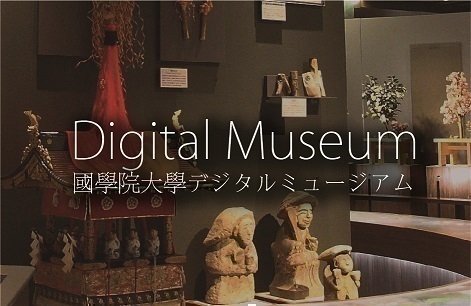- トップ
- Encyclopedia of Shinto
- Fukujin shinkō
Encyclopedia of Shinto
| Main Menu: | |
| Links: |
詳細表示 (Complete Article)
| カテゴリー1: | 6. Belief and Practice |
|---|---|
| カテゴリー2: | Folk Religion |
| Title | Fukujin shinkō |
| Text | Cultic worship of "deities of good fortune" or "good-luck deities" (fukujin), namely those that respond to human prayers for happiness. It should be noted that the term fukujin is not a proper noun, but a general referent given to any deity whose primary function is thought to be the granting of blessings to human beings. Each individual fukujin has its own unique origin. Some, like Daikoku, Bishamonten, Fudō Myōō, and Kisshō Tennyo began in Brahmanic Hinduism and were accepted into Buddhism; others like Fukurokuju originated in Chinese religion (including Daoism and beliefs in "immortals"). And some were Japanese in origin, including the agricultural deity Ugajin, the border deities called dōsojin, and animal spirits such as Dakiniten. Still others include deities of sea-faring and itinerant peoples and the faddish deities known as hayarigami — overall, an enormous variety of such "gods of fortune" can be observed. Further, even the various deities tentatively classified above have undergone highly complicated courses of adaptation and melding, with the result that it is generally impossible to reduce any one to a single origin. For example, Daikokuten was originally an Indian god of war and the kitchen, but as it was assimilated by esoteric Buddhism, it came to be considered an avatar of the Buddha Vairocana (Jp. Dainichi Nyorai), or else the fearsome deity Yashajin. After being introduced to Japan, it also became identified with the native kami Ōkuninushi, and eventually came to be portrayed in its present form, covered with a hood-like scarf and holding a large bag and hammer. In the same way, Ebisu was originally a fearsome itinerant visitor, something bringing disease to the community from outside, but it became a tutelary of fishers and other sea-faring people, worshiped to ensure large catches of fish and safety on the sea. Through its cult at the Nishinomiya Ebisu shrine, it then became a tutelary of commerce. In this way, one of the major characteristics of fukujin is the way in which they often began as deities of war and disaster, but came to use their powers for good, blessing the people who worshiped them. An example of a traditional assembly or grouping of fukujin is the "seven deities of good fortune" or shichi fukujin. Centering on Daikokuten and Ebisu, others of the seven include Hotei, Jurōjin, Fukurokuju, Bishamonten, and Benzeiten. It is generally believed that these seven first became recognized as a group sometime between the Muromachi and early Edo periods. Reasons for this grouping include (1) the development of commerce and trade and expansion of opportunities for activity by people so employed; (2) the activity of professional entertainers; and (3) demand for hanging scrolls resulting from the appearance of the architectural element of the tokonoma (alcove). Regarding (1), the period saw the formation of increasing desires for wealth in the present world; regarding (2), dances including the Daikokumai and Daikoku Senzu Manzai became widely popular, leading to the spread of folk performances that invoked good fortune; and regarding (3), the use of caricatures and comic poses enhanced the popularity of scrolls featuring the gods of fortune among the populace. The popular motif of the seven gods riding on a "treasure ship" (takarabune) reflected the concept that wealth would be brought from another land across the sea. In addition, the growing popularity of shrine and temple pilgrimages (see sankei) from the early modern period on added to the popularity of fukujin, so that, for example, the Tokyo region has become known for its "pilgrimage to the seven deities of good fortune" (shichi fukujin-mairi) observed around the New Year's season, and there also appears to be a trend toward increasing numbers of local pilgrimage circuits to the "seven deities of good fortune," each bearing the name of the respective locality. In addition to such pilgrimage circuits to multiple deities, however, Benzaiten and each of the other deities continues to attract popularity for its individual blessings. — Yonei Teruyoshi |




